#3 Agriculture laws
Explore tagged Tumblr posts
Text
"Criminal Proceedings quashed due to non inclusion of the manufacturing company'
High Court quashes complaint against employees for misbranded insecticide due to manufacturer's exclusion and unaddressed re-analysis request.
Legal Issue:
Whether the complaint is maintainable without arraying the manufacturer company as an accused and the petitioners' right to re-analysis was violated.
Altaf Ahmed (Asst. Regional Manager) & Sh. Uday Kishan Tite (Quality Control Incharge)
v.
Union Territory of Jammu and Kashmir through Law Enforcement Inspector, Department Agriculture Kathua
CRM(M) No. 66/2020
Before the High Court of Jammu & Kashmir and Ladakh at Jammu
Heard by Hon'ble Mr. Justice Rajnesh Oswal J
Facts:
The petitioners are seeking quashing of the complaint registered against them by the Department of Agriculture through Law Enforcement Inspector, Kathua under Section 3k(i) & 29(1)(a)(i) of the Insecticide Act, 1968, before the Court of Munsiff (JMIC), Kathua.
Samples were drawn from the petitionrs for Chemical analysis of the insecticide "Noor (Dodine) 65% WP," where the product was found "misbranded" with a manufacturing date of 10.02.2017 and expiry date of 09.02.2019.
The petitioners filed application before the trial Court that the manufacturing company has not been arrayed as an accused and a necessary party.
The petitioners' moved an application for re analysis of the sample through Cetral Laboratory.
This application for re-analysis under Section 24(3)&(4) of the Act was not decided by the trial court.
Arguments:
Petitioners: The complaint is not maintainable as the manufacturer was not included as an accused and the trial court did not address their application for re-analysis, infringing their rights.
Respondent/State: The complaint is lawful and the petitioners' rights were not violated.
Court's Observation:
The trial court failed to decide the application for re-analysis within the product's shelf life, violating the petitioners' rights under Section 24(3)&(4) of the Act.
Without naming the manufacturer as an accused, the complaint against the petitioners is not maintainable. This aligns with the Supreme Court ruling in "Himanshu v. B. Shivamurthy" and "Northern Mineral Ltd. v. Union of India," emphasizing the necessity of including the manufacturer to prosecute employees.
Law Points
A Non-Inclusion of the Manufacturer as an Accused:
The petitioners were the employee of the manufacturing company, M/s Indofil Industries Ltd., and their Company was not arrayed as an accused.
2. As employees of the company, they could not be prosecuted without including the company itself as a party to the case.
3. Supreme Court's held in the case of "Himanshu v. B. Shivamurthy," that for vicarious liability to be attributed under the Insecticides Act, the manufacturer must be named as an accused.
B Right to Re-analysis of the Insecticide Sample:
The right of the petitioners to have the insecticide sample re-analyzed, as provided under Section 24(3)&(4) of the Insecticide Act, was violated.
2. Their application for re-analysis, was not decided but the trial court within the product's shelf life, thereby infringing their statutory right to challenge the initial analysis report.
#High Court of Jammu & Kashmir and Ladakh#Insecticide Act#1968#Manufacturer liability#Re-analysis rights#Quashing of complaint#Section 24(3)&(4)#Vicarious liability#Legal proceedings#Agricultural law#Misbranded insecticide
1 note
·
View note
Text
Selected Excerpts From The Fire Nation Royal Palace Servants' (Unofficial) Handbook
Or: Revisions To Normal Protocol After The Ascension Of Agni's Exalted Flame, The Dragon Of The Sun, et cetera, Fire Lord Zuko
1. Agni's Exalted Flame, The Dragon Of The Sun, et cetera, Fire Lord Zuko should not be referred to by his full titles and styles, no matter the context. This appears to annoy him. "Fire Lord Zuko" and "Lord Zuko" are acceptable, as well as "your majesty" and "my Lord".
1.1 "Lord Hotman", however, is unacceptable.
1.2. Even if the Avatar specifically requests you to address Fire Lord Zuko as that.
1.3. In fact, any attempts by the Avatar, the Lady Beifong, the honorable Tribesman Sokka or even Master Katara to get you to address Fire Lord Zuko by anything other than his proper title should be disregarded.
1.4. Referring to Ozai of the Fire Nation (titles rmvd, dishon.) as "The Loser Lord", however, is acceptable.
2. Fire Lord Zuko is aware of the concept of mortality, but does not seem to understand how it relates to His Majesty. Following activities should be discouraged: Free climbing, glider usage, contact with exotic animals larger than a turtleduck (or smaller, if the animal is known to be venomous), amateur theatre productions, cooking, sailing, spelunking, botany, please see full list in the Matron's office.
2.1. It should be noted that His Majesty's belief that mortality does not apply to him does not appear to be completely unfounded. After several "close calls", it has been decided that upon his demise, Fire Lord Zuko should lie in state for at least two weeks.
2.1.1. We do not want another incident.
3. The turtleducks in the Western Pond do not need to be fed by the servants any more.
3.1. However, the turtleducks should be rotated out at regular intervals in order to prevent overfeeding.
4. At any official social functions, at least three servants should be vigilant in case His Majesty tries to tell a joke.
4.1. It should be noted that there is no concern for His Majesty's jokes being offensive, crass or otherwise contrary to good taste. They are simply very bad. His Majesty always ends up embarrassed.
5. Any children left unattended in the Royal Palace for more than 15 degrees can be retrieved from the Fire Lord's office.
6. Should His Majesty go missing, the following places should be searched: roofs and any high places, cellars and secret passages, the fur of the Avatar's sky bison (which is surprisingly deep), and every place that an ordinary five-year-old would think to hide in during a game of "Hide and Explode."
6.1. All of the Imperial Firebenders as well as any soldier who wears a mask during the course of their duties should be questioned.
6.1.1. Important note: Some of the soldiers who are especially close to His Majesty can perform a passable imitation of him. Efforts should be made to prevent an uneducated soldier from, say, conducting a meeting with the Minister of Agriculture.
6.2. After the recent incident, that list is expanded to include the Kyoshi Warriors and any other groups that might wear concealing full face paint.
6.3. If all of these measures prove ineffective, a letter should be sent to The Dragon of the West, Prince Iroh, asking His Highness to return His Majesty.
6.4. If a ransom note is delivered, it should be immediately checked against the handwriting samples from the honorable Tribesman Sokka as well as Avatar Aang, before any other actions are taken.
6.4.1. Replying "Good luck, he's your problem now" to a ransom note is absolutely unacceptable.
6.4.1.1. To further drive home the point, the Royal Archives are required by law to preserve every single piece of royal correspondence. That thing will end up in a museum.
This handbook will be updated should it prove necessary.
#atla#atla zuko#atla aang#avatar aang#avatar the last airbender#atla spoilers#zuko#atla fic#crack fic#fire nation#sokka#fire nation palace servants' handbook
10K notes
·
View notes
Text
The Best News of Last Year - 2023 Edition
Welcome to our special edition newsletter recapping the best news from the past year. I've picked one highlight from each month to give you a snapshot of 2023. No frills, just straightforward news that mattered. Let's relive the good stuff that made our year shine.
January - London: Girl with incurable cancer recovers after pioneering treatment

A girl’s incurable cancer has been cleared from her body after what scientists have described as the most sophisticated cell engineering to date.
2. February - Utah legislature unanimously passes ban on LGBTQ conversion therapy

The Utah State Legislature has unanimously approved a bill that enshrines into law a ban on LGBTQ conversion therapy.
3. March - First vaccine for honeybees could save billions

The United States Department of Agriculture (USDA) has approved the world’s first-ever vaccine intended to address the global decline of honeybees. It will help protect honeybees from American foulbrood, a contagious bacterial disease which can destroy entire colonies.
4. April - Fungi discovered that can eat plastic in just 140 days

Australian scientists have successfully used backyard mould to break down one of the world's most stubborn plastics — a discovery they hope could ease the burden of the global recycling crisis within years.
5. May - Ocean Cleanup removes 200,000th kilogram of plastic from the Pacific Ocean

The Dutch offshore restoration project, Ocean Cleanup, says it has reached a milestone. The organization's plastic catching efforts have now fished more than 200,000 kilograms of plastic out of the Pacific Ocean, Ocean Cleanup said on Twitter.
6. June - U.S. judge blocks Florida ban on care for trans minors in narrow ruling, says ‘gender identity is real’

A federal judge temporarily blocked portions of a new Florida law that bans transgender minors from receiving puberty blockers, ruling Tuesday that the state has no rational basis for denying patients treatment.
7. July - World’s largest Phosphate deposit discovered in Norway

A massive underground deposit of high-grade phosphate rock in Norway, pitched as the world’s largest, is big enough to satisfy world demand for fertilisers, solar panels and electric car batteries over the next 50 years, according to the company exploiting the resource.
8. August - Successful room temperature ambient-pressure magnetic levitation of LK-99

If the claim by Sukbae Lee and Ji-Hoon Kim of South Korea’s Quantum Energy Research Centre holds up, the material could usher in all sorts of technological marvels, such as levitating vehicles and perfectly efficient electrical grids.
9. September - World’s 1st drug to regrow teeth enters clinical trials

The ability to regrow your own teeth could be just around the corner. A team of scientists, led by a Japanese pharmaceutical startup, are getting set to start human trials on a new drug that has successfully grown new teeth in animal test subjects.
10. October - Nobel Prize goes to scientists behind mRNA Covid vaccines

The Nobel Prize in Physiology or Medicine has been awarded to a pair of scientists who developed the technology that led to the mRNA Covid vaccines. Professors Katalin Kariko and Drew Weissman will share the prize.
11. November - No cases of cancer caused by HPV in Norwegian 25-year olds, the first cohort to be mass vaccinated for HPV.
Last year there were zero cases of cervical cancer in the group that was vaccinated in 2009 against the HPV virus, which can cause the cancer in women.
12. December - President Biden announces he’s pardoning all convictions of federal marijuana possession

President Joe Biden announced Friday he's issuing a federal pardon to every American who has used marijuana in the past, including those who were never arrested or prosecuted.
------
And there you have it – a year's worth of uplifting news! I hope these positive stories brought a bit of joy to your inbox. As I wrap up this special edition, I want to thank all my supporters!
Buy me a coffee ❤️
Merry Christmas and Happy New Year!
6K notes
·
View notes
Text
Things Biden and the Democrats did, this week #19
May 17-24 2024
President Biden wiped out the student loan debt of 160,000 more Americans. This debt cancellation of 7.7 billion dollars brings the total student loan debt relieved by the Biden Administration to $167 billion. The Administration has canceled student loan debt for 4.75 million Americans so far. The 160,000 borrowers forgiven this week owned an average of $35,000 each and are now debt free. The Administration announced plans last month to bring debt forgiveness to 30 million Americans with student loans coming this fall.
The Department of Justice announced it is suing Ticketmaster for being a monopoly. DoJ is suing Ticketmaster and its parent company Live Nation for monopolistic practices. Ticketmaster controls 70% of the live show ticket market leading to skyrocketing prices, hidden fees and last minute cancellation. The Justice Department is seeking to break up Live Nation and help bring competition back into the market. This is one of a number of monopoly law suits brought by the Biden administration against Apple in March and Amazon in September 2023.
The EPA announced $225 million in new funding to improve drinking and wastewater for tribal communities. The money will go to tribes in the mainland US as well as Alaska Native Villages. It'll help with testing for forever chemicals, and replacing of lead pipes as well as sustainability projects.
The EPA announced $300 million in grants to clean up former industrial sites. Known as "Brownfield" sites these former industrial sites are to be cleaned and redeveloped into community assets. The money will fund 200 projects across 178 communities. One such project will transform a former oil station in Philadelphia’s Kingsessing neighborhood, currently polluted with lead and other toxins into a waterfront bike trail.
The Department of Agriculture announced a historic expansion of its program to feed low income kids over the summer holidays. Since the 1960s the SUN Meals have served in person meals at schools and community centers during the summer holidays to low income children. This Year the Biden administration is rolling out SUN Bucks, a $120 per child grocery benefit. This benefit has been rejected by many Republican governors but in the states that will take part 21 million kids will benefit. Last year the Biden administration introduced SUN Meals To-Go, offering pick-up and delivery options expanding SUN's reach into rural communities. These expansions are part of the Biden administration's plan to end hunger and reduce diet-related disease by 2030.
Vice-President Harris builds on her work in Africa to announce a plan to give 80% of Africa internet access by 2030, up from just 40% today. This push builds off efforts Harris has spearheaded since her trip to Africa in 2023, including $7 billion in climate adaptation, resilience, and mitigation, and $1 billion to empower women. The public-private partnership between the African Development Bank Group and Mastercard plans to bring internet access to 3 million farmers in Kenya, Tanzania, and Nigeria, before expanding to Uganda, Ethiopia, and Ghana, and then the rest of the continent, bring internet to 100 million people and businesses over the next 10 years. This is together with the work of Partnership for Digital Access in Africa which is hoping to bring internet access to 80% of Africans by 2030, up from 40% now, and just 30% of women on the continent. The Vice-President also announced $1 billion for the Women in the Digital Economy Fund to assure women in Africa have meaningful access to the internet and its economic opportunities.
The Senate approved Seth Aframe to be a Judge on the US Court of Appeals for the First Circuit, it also approved Krissa Lanham, and Angela Martinez to district Judgeships in Arizona, as well as Dena Coggins to a district court seat in California. Bring the total number of judges appointed by President Biden to 201. Biden's Judges have been historically diverse. 64% of them are women and 62% of them are people of color. President Biden has appointed more black women to federal judgeships, more Hispanic judges and more Asian American judges and more LGBT judges than any other President, including Obama's full 8 years in office. President Biden has also focused on backgrounds appointing a record breaking number of former public defenders to judgeships, as well as labor and civil rights lawyers.
#Thanks Biden#Joe Biden#kamala harris#student loans#student loan forgiveness#ticketmaster#Africa#free lunch#hunger#poverty#internet#judges#politics#us politics#american politics
2K notes
·
View notes
Text
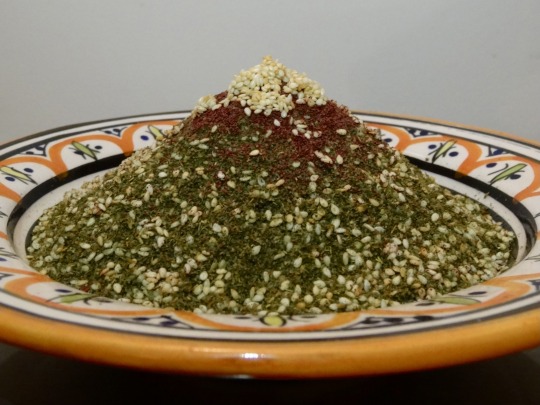
[ID: A decorative orange ceramic plate with a pyramid of green herbs and sesame seeds, topped with deep red sumac and more sesame seeds. End ID]
زعتر فلسطيني / Za'tar falastinia (Palestinian spice blend)
Za'tar (زَعْتَر; also transliterated "za'atar," "zaatar" and "zatar") is the name of a family of culinary herbs; it is also the name of a group of spice blends made by mixing these herbs with varying amounts of olive oil, sumac, salt, roasted sesame seeds, and other spices. Palestinian versions of za'tar often include caraway, aniseed, and roasted wheat alongside generous portions of sumac and sesame seeds. The resulting blend is bold, zesty, and aromatic, with a hint of floral sourness from the sumac, and notes of licorice and anise.
Za'tar is considered by Palestinians to have particular national, political, and personal importance, and exists as a symbol of both Israeli oppression and Palestinian home-making and resistance. Its major components, olive oil and wild thyme, are targeted by the settler state in large part due to their importance to ecology, identity, and trade in Palestine—settlers burn and raze Palestinian farmers' olive trees by the thousands each year. A 1977 Israeli law forbade the harvesting of wild herbs within its claimed borders, with violators of the law risking fines and confiscation, injury, and even death from shootings or land mines; in 2006, za'tar was further restricted, such that even its possession in the West Bank was met with confiscation and fines.
Despite the blanket ban on harvesting wild herbs (none of which are endangered), Arabs are the only ones to be charged and fined for the crime. Samir Naamnih calls the ban an attempt to "starve us out," given that foraging is a major source of food for many Palestinians, and that picking and selling herbs is often the sole form of income for impoverished families. Meanwhile, Israeli farmers have domesticated and farmed za'tar on expropriated Palestinian land, selling it (both the herb and the spice mixture) back to Palestinians, and later marketing it abroad as an "Israeli" blend; they thus profit from the ban on wild harvesting of the herb. This farming model, as well as the double standard regarding harvesting, refer back to an idea that Arabs are a primitive people unfit to own the land, because they did not cultivate or develop it as the settlers did (i.e., did not attempt to recreate a European landscape or European models of agriculture); colonizing and settling the land are cast as justified, and even righteous.
The importance of the ban on foraging goes beyond the economic. Raya Ziada, founder of an acroecology nonprofit based in Ramallah, noted in 2019 that "taking away access to [wild herbs] doesn't just debilitate our economy and compromise what we eat. It's symbolic." Za'tar serves variously as a symbol of Palestinians' connection to the land and to nature; of Israeli colonial dispossession and theft; of the Palestinian home ("It’s a sign of a Palestinian home that has za’tar in it"); and of resistance to the colonial regime, as many Palestinians have continued to forage herbs such as za'tar and akkoub in the decades since the 1977 ban. Resistance to oppression will continue as long as there is oppression.
Palestine Action has called for bail fund donations to aid in their storming, occupying, shutting down, and dismantling of factories and offices owned by Israeli arms manufacturer Elbit Systems. Also contact your representatives in the USA, UK, and Canada.
Ingredients:
Za'tar (Origanum syriacum), 250g once dried (about 4 cups packed)
250g (1 2/3 cup) sesame seeds
170g (3/4 cup) Levantine sumac berries, or ground sumac (Rhus coriaria)
100g (1/2 cup) wheat berries (optional)
2 Tbsp olive oil
1 Tbsp aniseed (optional)
1/2 Tbsp caraway seeds (optional)
Levantine wild thyme (also known as Bible hyssop, Syrian oregano, and Lebanese oregano) may be purchased dried online. You may also be able to find some dried at a halal grocery store, where it will be labelled "زعتر" (za'tar) and "thym," "thyme," or "oregano." Check to make sure that what you're buying is just the herb and not the prepared mixture, which is also called "زعتر." Also ensure that what you're buying is not a product of Israel.
If you don't have access to Levantine thyme, Greek or Turkish oregano are good substitutes.
Wheat berries are the wheat kernel that is ground to produce flour. They may be available sold as "wheat berries" at a speciality health foods store. They may be omitted, or replaced with pre-ground whole wheat flour.
Instructions:
1. Harvest wild thyme and remove the stems from the leaves. Wash the leaves in a large bowl of water and pat dry; leave in a single layer in the sun for four days or so, until brittle. Skip this step if using pre-dried herbs.
2. Crumble leaves by rubbing them between the palms of your hands until they are very fine. Pass through a sieve or flour sifter into a large bowl, re-crumbling any leaves that are too coarse to get through.
Crumbling between the hands is an older method. You may also use a blender or food processor to grind the leaves.
3. Mix the sifted thyme with a drizzle of olive oil and work it between your hands until incorporated.
4. Briefly toast sumac berries, caraway seeds, and aniseed in a dry skillet over medium heat, then grind them to a fine powder in a mortar and pestle or a spice mill.
5. Toast sesame seeds in a dry skillet over medium heat, stirring constantly, until deeply golden brown.
6. (Optional) In a dry skillet on medium-low, toast wheat berries, stirring constantly, until they are deeply golden brown. Grind to a fine powder in a spice mill. If using ground flour, toast on low, stirring constantly, until browned.

Some people in the Levant bring their wheat to a local mill to be ground after toasting, as it produces a finer and more consistent texture.
7. Mix all ingredients together and work between your hands to incorporate.
Store za'tar in an airtight jar at room temperature. Mix with olive oil and use as a dipping sauce with bread.
2K notes
·
View notes
Text
Astro Observations

Part 10 I think ! I lost count 😂
1. You’ll notice many astrologers w Saturn prominent in the chart. Saturn represents time, and astrology is the keeping of time.
2. People obsessed w astrology have a strong connection w the 8th house in their chart. Especially Jupiter, rahu, ketu, saturn, mars or their Atmakaraka in the 8th house.
3. Krittika is connected to farming and agriculture , especially the Aries portion of it.
4. Opposition Nakshatras experience similar themes
5. For example Ashlesha opposes Dhanishta (Capricorn portion) they both deal with the perils of abuse in early life and the perils of fame too. Both have challenging connection w mother figure.
6. Saturn is metal, Saturnians have this robotic coldness ab them. With Saturnian nakshatras especially uttarabhadrapada and anuradha they can appear very still and controlled to others, where ppl find them a but off-putting bc of this.
7. The only ppl that loosen Saturnian’s coldness is the luminaries, sun and moon. Saturnians will be mean to everyone but have a soft spot for solarians and lunar influenced ppl.
8. Saturnians also love venusians since Saturn exalts in a Venusian sign
9. Then martians loosen mercurials. This is especially prominent with the tightly wound Ashlesha where they are loosened by mars naks especially Mrigashira and Dhanishta.
10. You’ll see that Mrigashira and Ashlesha is found in the charts of many couples.
11. The 5th house is “the king’s favorite” so for example if a boss, teacher, authority figure etc will have 5th house synastry with their “favorite” student, employee etc
12. This is why Leo’s are considered lucky. 5th house - is connected to Leo- it’s the 5th sign. Leo natives often experience luck in life bc they are favored by higher forces, which is connected to the 9th house , houses 1/5/9 form a trine. They are chosen as the “favorites” when it matters most.
13. Think about in Harry Potter, (the actor is a Leo IRL). In the movie he’s always chosen as the favorite, by hagrid , by Dumbledore , even though he had enemies, was in danger, and was in poverty at first, he was always protected and taken care of by otherworldly forces.
14. Same applies to dating, people date their 5th house sign bc out of all the suitors you attract , 5th house is the favorites out of everyone.
15. Houses 1/5/9 all are related to royalty , 1st house are like the princess (daughter of a king) the 5th house is the children of the princess, and 9th house is the king himself, or the grandfather.
16. Aries-1st house, Leo- 5th house , Sagittarius 9th house
17. That’s why Ketu Nakshatras -Ashwini(Aries) , Magha (Leo) , Mula (Sagittarius), are often seen in the charts of royalty IRL.
18. Princess Diana had Magha lagnesh and Rahu, her son Prince William has Mula Ascendant , Queen Elizabeth was Ashwini Sun.
19. Ppl think only Leo is royalty but it also extends to the Signs that trine Leo - Aries & Sag
20. Your 4th and 9th house are people who are genetically related to you. 4th house is mother, grandmother and female ancestors, 9th house is father, grandfather and male ancestors
21. 8th house is your in laws and how they receive you. 8th house in Leo, your in laws adore you, 8th house in aquarius they can reject you and not accept you at first. Etc
22. Sometimes 4th house synastry can create discomfort btwn ppl. Where 4th house is ur innermost self. So when’s someone’s personal planets are in ur 4th house , you feel like they can read your mind or know u too well.
23. Couples w 4th house synastry find it hard to break up permanently they usually always get back together.
-starsandsuch ✌️💕
#vedic astrology#astrology observations#astrology#aries#sagittarius#leo#anuradha#ashwini#uttara bhadrapada#nakshatras#starsandsuch#2024
455 notes
·
View notes
Text
"When Francois Beyers first pitched the concept of 3D ocean farming to the Welsh regulators, he had to sketch it on napkins.
Today the seafood farm is much more than a drawing, but if you walked along the Welsh coastal path near St David’s, all you’d see is a line of buoys. As Beyers puts it: “It’s what’s below that’s important.”
Thick tussles of lustrous seaweed suspend from the buoys, mussels cling to its furry connective ropes and dangling Chinese lantern-esque nets are filled with oysters and scallops.
“It’s like an underwater garden,” says Beyers, co-founder of the community-owned regenerative ocean farm, Câr-y-Môr. The 3-hectare site is part of a fledgling sector, one of 12 farms in the UK, which key players believe could boost ocean biodiversity, produce sustainable agricultural fertiliser and provide year-round employment in areas that have traditionally been dependent on tourism.
Created in 2020 by Beyers and six family members, including his father-in-law – an ex-shellfish farmer – the motivation is apparent in the name, which is Welsh for “for the love of the sea”. ...

Pictured: Drone shot of Câr-y-Môr, which is on the site of abandoned mussel farms. Image: Scott Chalmers
Ocean farming comes from the technical term ‘integrated multi-trophic aquaculture’, which means a mixture of different seaweed and shellfish species growing together to mutually benefit each other. But it’s not just a way of growing food with little human input, it also creates ocean habitat.
“You’re creating a breeding ground for marine animals,” explains Beyers who adds that the site has seen more gannets diving, porpoises and seals – to name a few – since before the farm was established.
Ocean farms like Câr-y-Môr, notes Ross Brown – environmental research fellow at the University of Exeter – have substantial conservation benefits.
“Setting up a seaweed farm creates an exclusion zone so fishermen can’t trawl it,” explains Brown, who has been conducting experiments on the impacts of seaweed and shellfish farms across the UK.
Brown believes a thriving ocean farming industry could provide solutions to the UK’s fish stock, which is in “a deeply troubling state” according to a report that found half of the key populations to be overfished. “It would create stepping stones where we have safe havens for fish and other organisms,” he adds.
But UK regulators have adopted a cautious approach, note Brown and Beyers, making it difficult for businesses like Câr-y-Môr to obtain licenses. “It’s been a tough old slog,” says Beyers, whose aim is to change the legislation to make it easier for others to start ocean farms.
Despite navigating uncharted territories, the business now has 14 full-time employees, and 300 community members, of which nearly 100 have invested in the community-benefit society. For member and funding manager Tracey Gilbert-Falconer, the model brings expertise but most importantly, buy-in from the tight-knit local community.
“You need to work with the community than forcing yourself in,” she observes.
And Câr-y-Môr is poised to double its workforce in 2024 thanks to a Defra grant of £1.1 million to promote and develop the Welsh seafood industry as part of the UK Seafood Fund Infrastructure Scheme. This will go towards building a processing hub, set to be operational in April, to produce agricultural fertiliser from seaweed.
Full of mineral nutrients and phosphorous from the ocean, seaweed use in farming is nothing new, as Gilbert-Falconer notes: “Farmers in Pembrokeshire talk about their grandad going down to the sea and throwing [seaweed] on their farms.”
But as the war in Ukraine has caused the price of chemical fertiliser to soar, and the sector tries to reduce its environmental impact – of which synthetic fertiliser contributes 5% of total UK emissions – farmers and government are increasingly looking to seaweed.
The new hub will have capacity to make 65,000 litres of sustainable fertiliser annually with the potential to cover 13,000 acres of farmland.
But to feed the processing hub, generate profit and reduce their dependency on grants, the co-op needs to increase the ocean farm size from three to 13 hectares. If they obtain licences, Beyers says they should break even in 18 months.
For now, Beyers reflects on a “humbling” three years but revels in the potential uses of seaweed, from construction material to clothing.
“I haven’t seen the limit yet,” he smiles."
-via Positive.News, February 19, 2024
#wales#welsh#ocean#marine biology#aquaculture#marine life#marine animals#seaweed#sea scallops#oysters#united kingdom#uk#conservation#conservation news#overfishing#environmental news#farming#sustainable agriculture#sustainability#ocean farming#good news#hope
490 notes
·
View notes
Text







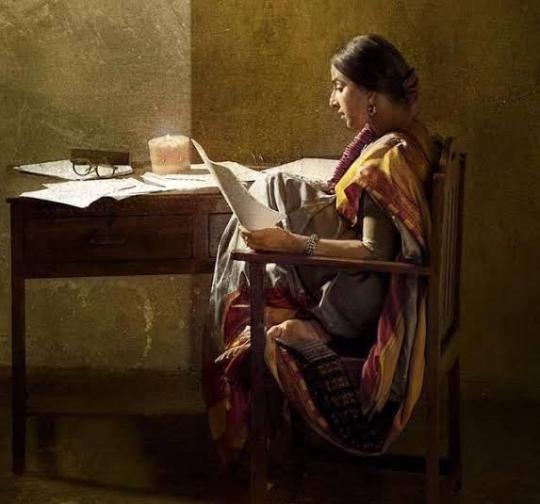
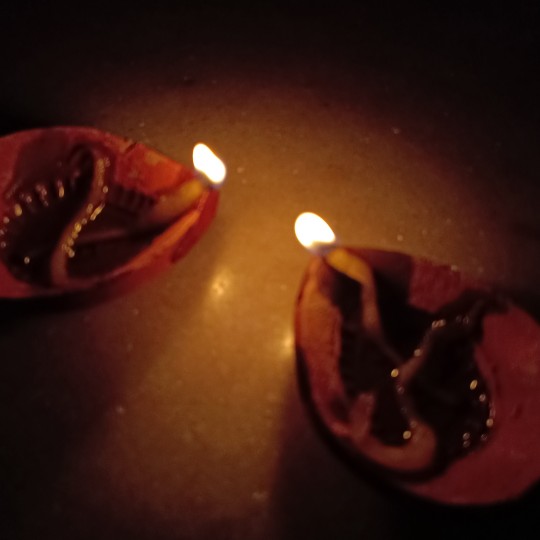
Khona was a poet and astronomer from Deulia village in Bengal, best known for Khonar Bochon, a series of couplets and short rhymes which imparts advice regarding agricultural and rural life. Born somewhere between 800-1200 A.D., Khona defied social and cultural norms of her time when women were rarely taught to read. Her husband Mihir was the son of the philosopher and astronomer Barahmihir, who was one of the navaratnas (nine gems) at the court of Chandragupta II. Khona lived in Chandragupta's court in Pataliputra for a time with her husband and father-in-law. According to legend, Chandragupta was so impressed with Khonar Bochon which benefited the farmers of his state that he named Khona the tenth gem of his court. Khonar Bochon remains relevant to the agricultural life of rural Bengal to the present day.
ষোল চাষে মূলা / তার অর্ধেক তুলা / তার অর্ধেক ধান / বিনা চাষে পান।
Translation: After 16 days of cultivation, radish cultivation in that land gives good yield. Cotton land requires 8 days of cultivation, paddy land after 4 days of cultivation gives good yield. Betel does not require cultivation.
1 / 2 / 3 / 4 / 5 / 6 / 7 / 8 / 9
#mb#khona#khonar bochon#khana#bengali academia#bangla tag#bangladesh#india#desi academia#dark academia#desi aesthetic#desi tag#desi tumblr#desiblr#bengali#indian history#ancient india#khonar bochor for anon#bengali literature
421 notes
·
View notes
Text
Dandelion News - December 8-14
Like these weekly compilations? Tip me at $kaybarr1735 or check out my Dandelion Doodles for 50% off this month!
1. Rooftop Solar Keeps Getting More Accessible Across Incomes

“The long-term trend is that the median income for a household with rooftop solar is getting closer almost every year to that of the median income for owner-occupied households.”
2. Endangered seabirds return to Pacific island after century-long absence
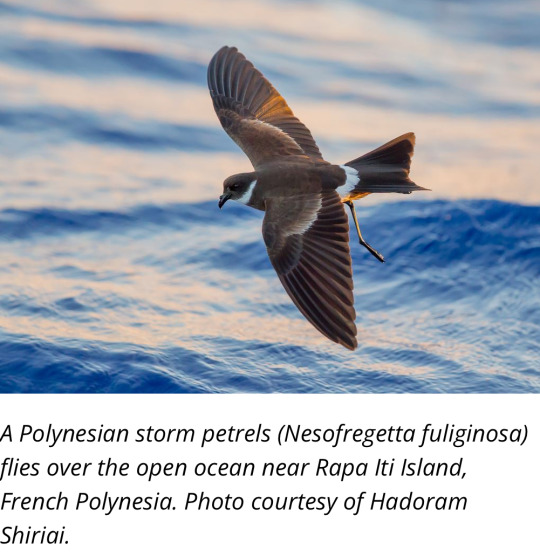
“"No native species were harmed during the removal of invasive rats from Kamaka Island,” Esposito said. […] The team also collected and planted native sedges and grasses while removing invasive trees to enhance nesting conditions.”
3. First-of-its-kind crew welfare measure adopted at Pacific fisheries summit
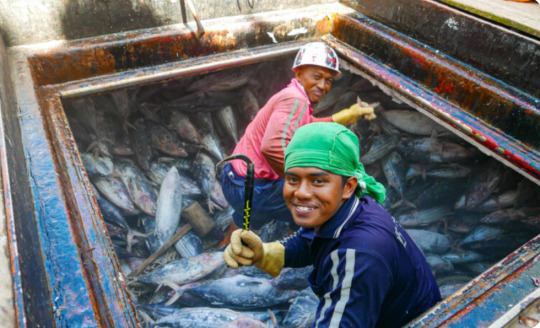
“The new measure establishes minimum standards on board, including access to clean food and water, medical care, and sleeping quarters. It stipulates that workers have “unfettered access” to their identity documents […] and “unmonitored access to communication devices to seek assistance.””
4. Greyhound racing is increasingly rare worldwide. New Zealand now plans to outlaw the practice

“New Zealand’s government rushed through a law to prevent dogs from being killed while the industry winds down, unless a veterinarian deems it unavoidable. This will prevent owners from euthanizing dogs for economic reasons, Peters said.”
5. Possible Win-Win for Wildlife Management and Food Security
“Wild-harvested meat donation programs can help improve food insecurity while also helping manage overabundance of wildlife species like white-tailed deer[…. In one program,] hunters donated 600,000 meals. But that’s only 5.7% of the amount of venison that food donation facilities could use, according to the Food Bank Council of Michigan. The researchers say this suggests there’s room for scaling up these programs.”
6. Poll of American Farmers Shows Strong, Widespread Support for Increased Farm Bill Conservation Funding

“The polling, which surveyed over 500 farmers and ranchers across the country, found broad support for continuing and increasing funding for climate-smart agriculture conservation programs.”
7. Long-distance friendships enhance trust in conservation efforts
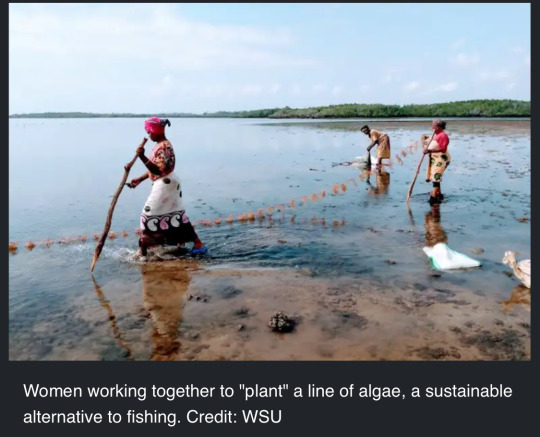
“Relative to a person with no long-distance friends, having even just one friend in another village led to a 15% increase in conservation activities such as beach cleanups, reporting illegal fishing practices and educating others about sustainable resource management.”
8. Two major Sunshine State airports make switch to 100 pct renewables

“Power for operations ranging from lighting and air conditioning to escalators and charging stations will be provided from renewable energy projects [...] at the beginning of 2025, ensuring clean energy operations for the more than 8 million passenger journeys averaged each year.”
9. Expansion of federally subsidized public housing may offer a path out of LA's homelessness crisis

“[… A] half-cent sales tax [was] recently approved by L.A. County voters expected to generate $1 billion per year to address homelessness. […] “Metros with higher concentrations of federally financed public housing tend to have lower rates of unsheltered homelessness," Schachner said.”
10. $20 Million Available to Advance Habitat Restoration Priorities of Tribes and Underserved Communities
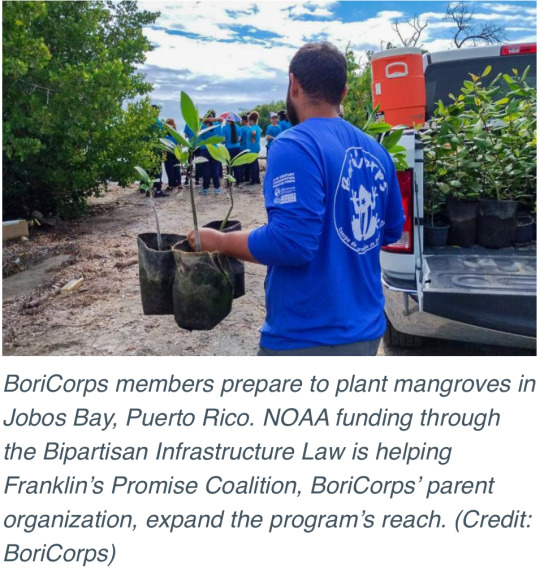
“Through this funding, NOAA will help support community-driven habitat restoration and build the capacity of tribes and underserved communities to more fully participate in restoration activities.”
December 1-7 news here | (all credit for images and written material can be found at the source linked; I don’t claim credit for anything but curating.)
#hopepunk#good news#solar#solar panels#solar power#rooftop solar#income inequality#low income#birds#conservation#invasive species#human rights#workers rights#fishing#dogs#greyhound#tw dog death#tw pet death#dog racing#hunting#farmers#climate#climate action#community#renewableenergy#airport#unhoused#homelessness#noaa#habitat restoration
66 notes
·
View notes
Note
I thought all of the gods have Chthonic aspects? chthonic related not to just the dead but also agriculture and the earth. Zeus, Apollo, Hera, Demeter, etc. are also Chthonic deities. Boxing deities into neat little boxes is just weird. The distinction really isn't that important because it just gets used in discussions such as "Ouronic vs Chthonic" in online spheres particularly with new members and these boxes can also be confusing to new worshippers who aren't sure how to worship their deities who are in an in between such as Hermes, Demeter, Dionysus and Poseidon. The classifications are made out to be way more important than they actually are in my opinion. This is in no way a critique on this blog, I adore it it's just I have no where else to share this.
hi! you're absolutely right, and perhaps it's well past time for me to make a post on this matter.
for newbies to helpolytheism--keep in mind though my word is not law here (neither is anyone else's)--please don't concern yourself too much with chthonic vs ouranic gods. i personally use it because it helps me to narrow down the focus of this blog and my tumblr community, and to sometimes shed light on alternative ancient greek practices.
however, as anon says, basically every god has a chthonic aspect/epithet. and even furthermore, chthonic in no way means "dark" or "evil," it's literal translation is "of the earth." the reason why it's become synonymous with the Underworld, i don't know, but realistically there's not much of a big importance placed on chthonic vs ouranic outside of online circles.
Why do I continue to use the label then?
1) idk. sounds cool ig
2) to me there seems to be a small difference between chthonic and just the Underworld gods. Nyx, for example, would more than likely spend a considerable amount of time outside of the underworld, seeing as she is the harbinger of night. Hermes, too, is not an underworld god, but he travels to and from with relative frequency. now, could i just say "gods related to the underworld?" yes, most certainly, and maybe ill change it at some point. however i find that chthonic is just less wordy, and ig the hope has been this whole time that people would interpret it with nuance,,, but i could see where that would confuse new converts.
3) the worship of these "dark" gods/daemons/titans/protogenoi varies very slightly compared to true "ouranic" gods (i.e. zeus chthonius vs his "light" aspects). i have a whole post on it here somewhere
but yeah, in the end, fuck the labels. i just use them cause my little autistic brain is small and runs on hamster wheel power
thanks for the ask anon!
#hellenic deities#hellenic pagan#hellenic polytheism#hellenic worship#hellenism#helpol#ancient greece#ancient greek#chthonic deities#greek gods#chthonic#hellenic paganism#pagan witch#paganism#pagan#pagan community#paganblr#witch community#witches#witch#witchcraft#witchblr#ancient greek mythology
32 notes
·
View notes
Photo

Child Labour in the British Industrial Revolution
Children were widely used as labour in factories, mines, and agriculture during the British Industrial Revolution (1760-1840). Very often working the same 12-hour shifts that adults did, children as young as five years old were paid a pittance to climb under dangerous weaving machines, move coal through narrow mine shafts, and work in agricultural gangs.
It was very often the case that children's jobs were well-defined and specific to them, in other words, child labour was not merely an extra help for the adult workforce. The education of many children was replaced by a working day, a choice often made by parents to supplement a meagre family income. It was not until the 1820s that governments began to pass laws that restricted working hours and business owners were compelled to provide safer working conditions for everyone, men, women, and children. Even then a lack of inspectors meant many abuses still went on, a situation noted and publicised by charities, philanthropists, and authors with a social conscience like Charles Dickens (1812-1870).
A Lack of Education
As sending a child to school involved paying a fee – even the cheapest asked for a penny a day – most parents did not bother. Villages often had a small school, where each pupil's parents paid the teacher, but attendance was sometimes erratic and more often than not the education rudimentary in hopelessly overcrowded classes. There were some free schools run by charities, and churches often offered Sunday school. Not until 1844 were there more free schools available, such as the Ragged schools established by Anthony Ashley-Cooper, 7th Earl of Shaftesbury (1801-1885). These schools concentrated on the basics, what became known as the 3 Rs of Reading, Writing, and Arithmetic. Compulsory education for 5 to 12-year-olds, and the institutions necessary to provide it, would not come along until the 1870s. Consequently, "at least half of nominally school-age children worked full-time during the industrial revolution" (Horn, 57).
Some factory owners were more generous than others to the children in their employ. An example is the Quarry Bank Mill in Styal in the county of Cheshire. Here the owner provided schooling after the long working day was over for 100 of its child workers in a dedicated building, the Apprentice House.
An indicator of better education, despite all the difficulties, is literacy rates, rather imperfectly measured by historians by recording the ability of a person to sign one's name on official documents such as marriage certificates. There was a great improvement in literacy, but by 1800, still only half of the adult population could sign their name to such documents.
For those children who could find work in the Industrial Revolution, and there were employers queueing up to offer it, there were no trade unions to protect them. For the vast majority of children, working life started at an early age – on average at 8 years old – but as nobody really cared about age, this could vary wildly. Working involved at best tedium and at worst an endless round of threats, fines, corporal punishment, and instant dismissal at any protest to such treatment. In one survey taken in 1833, it was found that the tactics used with child labourers were 95% negative. Instant dismissal accounted for 58%. In only 4% of cases was a reward given for good work, and a mere 1% of the strategies used involved a promotion or pay rise.
Continue reading...
112 notes
·
View notes
Text

Jesse Duquette
* * * *
LETTERS FROM AN AMERICAN
January 25, 2025
Heather Cox Richardson
We have all earned a break for this week, but as some of you have heard me say, I write these letters with an eye to what a graduate student will need to know in 150 years. Two things from last night belong in the record of this time, not least because they illustrate President Donald Trump’s deliberate demonstration of dominance over Republican lawmakers.
Last night the Senate confirmed former Fox News Channel weekend host Pete Hegseth as the defense secretary of the United States of America. As Tom Bowman of NPR notes, since Congress created the position in 1947, in the wake of World War II, every person who has held it has come from a senior position in elected office, industry, or the military. Hegseth has been accused of financial mismanagement at the small nonprofits he directed, has demonstrated alcohol abuse, and paid $50,000 to a woman who accused him of sexual assault as part of a nondisclosure agreement. He has experience primarily on the Fox News Channel, where his attacks on “woke” caught Trump’s eye.
The secretary of defense oversees an organization of almost 3 million people and a budget of more than $800 billion, as well as advising the president and working with both allies and rivals around the globe to prevent war. It should go without saying that a candidate like Hegseth could never have been nominated, let alone confirmed, under any other president. But Republicans caved, even on this most vital position for the American people's safety.
The chair of the Senate Armed Services Committee, Roger Wicker (R-MS), tried to spin Hegseth’s lack of relevant experience as a plus: “We must not underestimate the importance of having a top-shelf communicator as secretary of defense. Other than the president, no official plays a larger role in telling the men and women in uniform, the Congress and the public about the threats we face and the need for a peace-through-strength defense policy.”
Vice President J.D. Vance had to break a 50–50 tie to confirm Hegseth, as Republican senators Lisa Murkowski of Alaska, Susan Collins of Maine, and Mitch McConnell of Kentucky joined all the Democrats and Independents in voting no. Hegseth was sworn in early this morning.
That timing mattered. As MSNBC host Rachel Maddow noted, as soon as Senator Joni Ernst (R-IA), whose “yes” was secured only through an intense pressure campaign, had voted in favor, President Trump informed at least 15 independent inspectors general of U.S. government departments that they were fired, including, as David Nakamura, Lisa Rein, and Matt Viser of the Washington Post noted, those from ���the departments of Defense, State, Transportation, Labor, Health and Human Services, Veterans Affairs, Housing and Urban Development, Interior, Energy, Commerce, and Agriculture, as well as the Environmental Protection Agency, Small Business Administration and the Social Security Administration.” Most were Trump’s own appointees from his first term, put in when he purged the inspectors general more gradually after his first impeachment.
Project 2025 called for the removal of the inspectors general. Just a week ago Ernst and her fellow Iowa Republican senator Chuck Grassley co-founded a bipartisan caucus—the Inspector General Caucus—to support those inspectors general. Grassley told Politico in November that he intends to defend the inspectors general.
Congress passed a law in 1978 to create inspectors general in 12 government departments. According to Jen Kirby, who explained inspectors general for Vox in 2020, a movement to combat waste in government had been building for a while, and the fraud and misuse of offices in the administration of President Richard M. Nixon made it clear that such protections were necessary. Essentially, inspectors general are watchdogs, keeping Congress informed of what’s going on within departments.
Kirby notes that when he took office in 1981, President Ronald Reagan promptly fired all the inspectors general, claiming he wanted to appoint his own people. Congress members of both parties pushed back, and Reagan rehired at least five of those he had fired. George H.W. Bush also tried to fire the inspectors general but backed down when Congress backed up their protests that they must be independent.
In 2008, Congress expanded the law by creating the Council of Inspectors General on Integrity and Efficiency. By 2010 that council covered 68 offices.
During his first term, in the wake of his first impeachment, Trump fired at least five inspectors general he considered disloyal to him, and in 2022, Congress amended the law to require any president who sought to get rid of an inspector general to “communicate in writing the reasons for any such removal or transfer to both Houses of Congress, not later than 30 days before the removal or transfer.” Congress called the law the “Securing Inspector General Independence Act of 2022.”
The chair of the Council of Inspectors General on Integrity and Efficiency, Hannibal “Mike” Ware, responded immediately to the information that Trump wanted to fire inspectors general. Ware recommended that Director of Presidential Personnel Sergio Gor, who had sent the email firing the inspectors general, “reach out to White House Counsel to discuss your intended course of action. At this point, we do not believe the actions taken are legally sufficient to dismiss” the inspectors general, because of the requirements of the 2022 law.
This evening, Nakamura, Rein, and Viser reported in the Washington Post that Democrats are outraged at the illegal firings and even some Republicans are expressing concern and have asked the White House for an explanation. For his part, Trump said, incorrectly, that firing inspectors general is “a very standard thing to do.” Several of the inspectors general Trump tried to fire are standing firm on the illegality of the order and plan to show up to work on Monday.
The framers of the Constitution designed impeachment to enable Congress to remove a chief executive who deliberately breaks the law, believing that the determination of senators to hold onto their own power would keep them from allowing a president to seize more than the Constitution had assigned him.
In Federalist No. 69, Alexander Hamilton tried to reassure those nervous about the centralization of power in the new Constitution that no man could ever become a dictator because unlike a king, “The President of the United States would be liable to be impeached, tried, and, upon conviction of treason, bribery, or other high crimes or misdemeanors, removed from office; and would afterwards be liable to prosecution and punishment in the ordinary course of law.”
But the framers did not anticipate the rise of political parties. Partisanship would push politicians to put party over country and eventually would induce even senators to bow to a rogue president. MAGA Senator John Barrasso of Wyoming told the Fox News Channel today that he is unconcerned about Trump’s breaking the law written just two years ago. “Well, sometimes inspector generals don't do the job that they are supposed to do. Some of them deserve to be fired, and the president is gonna make wise decisions on those.”
There is one more story you’ll be hearing more about from me going forward, but it is important enough to call out tonight because it indicates an important shift in American politics. In an Associated Press/NORC poll released yesterday, only 12% of those polled thought the president relying on billionaires for policy advice is a good thing. Even among Republicans, only 20% think it’s a good thing.
Since the very earliest days of the United States, class was a central lens through which Americans interpreted politics. And yet, in the 1960s, politicians began to focus on race and gender, and we talked very little about class. Now, with Trump embracing the world’s richest man, who invested more than $250 million in his election, and with Trump making it clear through the arrangement of the seating at his inauguration that he is elevating the interests of billionaires to the top of his agenda, class appears to be back on the table.
LETTERS FROM AN AMERICAN
HEATHER COX RICHARDSON
#Letters From An American#Heather Cox Richardson#cabinet posts#Inspectors General#Hegseth#FOX news#class#Billionaires#Gilded Age
23 notes
·
View notes
Note
Hello! Recently got into your lore rekindled series and as a (used to be) fan of lore Olympus I LOVE what you have done to the world and characters. Everything flows so naturally and you actually made Persephone a cool protagonist.
One question I had (if it will come up in future episodes no need to answer) is will Persephone’s interest in law school be a thing? When I was rewriting my own AU of lore Olympus I used Persephone’s interest in law to be the reason why she went to the Underworld and met Hades. As in the original comic it says that the underworld creates the finest lawyers in a throw away line. I also used Persephone’s love of law to be one of the major reasons why she and Demeter being to have conflict. Demeter wanting her to be into agriculture and horticulture like her and seeing Persephone becoming a soulless lawyer creating one of the driving conflicts of their relationship.
Heyo! Thanks so much, I'm glad you like it! <3
There won't really be a law school interest in Rekindled as that already felt like a half-thought-out plotline in LO with very little foundation (and honestly I always saw that mention about the Underworld having the only law school as a throwaway joke about lawyers being terrible people from hell LOL)
HOWEVER she still does have her own motivations for wanting to work in the Underworld that remain to be fully seen. There are lil' hints here and there that have been dropped (and more on the way, esp in the next couple episodes) but I'm waiting to see who pieces the puzzle together by the time it's revealed ;)
That idea you just pitched though for Persephone wanting to pursue law instead of agriculture would have been really interesting! I feel like if Rachel had actually planned out that plotline more she could have definitely gone at it from that angle. Couold have even set it up in the beginning for her to go to law school in the Underworld instead of university in Olympus which could have created an interesting scenario as that would have explained a lot more why Demeter didn't want her to move away.
I still would have been annoyed at the rift between them existing at all but it would have made more sense than "mom signed me up for the virgin club and now she's mad that I'm running off with the 2000+ year old man >:(" LMAO (or at least the way LO writes it, bleh)
#ask me anything#ama#anon ama#anon ask me anything#lo critical#lore olympus critical#anti lore olympus
85 notes
·
View notes
Text
The Best News of Last Week
1. ‘It was an accident’: the scientists who have turned humid air into renewable power
Greetings, readers! Welcome to our weekly dose of positivity and good vibes. In this edition, I've gathered a collection of uplifting stories that will surely bring a smile to your face. From scientific breakthroughs to environmental initiatives and heartwarming achievements, I've got it all covered.

In May, a team at the University of Massachusetts Amherst published a paper declaring they had successfully generated a small but continuous electric current from humidity in the air. They’ve come a long way since then. The result is a thin grey disc measuring 4cm across.
One of these devices can generate a relatively modest 1.5 volts and 10 milliamps. However, 20,000 of them stacked, could generate 10 kilowatt hours of energy a day – roughly the consumption of an average UK household. Even more impressive: they plan to have a prototype ready for demonstration in 2024.
2. Empty Office Buildings Are Being Turned Into Vertical Farms

Empty office buildings are being repurposed into vertical farms, such as Area 2 Farms in Arlington, Virginia. With the decline in office usage due to the Covid-19 pandemic, municipalities are seeking ways to fill vacant spaces.
Vertical farming systems like Silo and AgriPlay's modular growth systems offer efficient and adaptable solutions for converting office buildings into agricultural spaces. These initiatives not only address food insecurity but also provide economic opportunities, green jobs, and fresh produce to local communities, transforming urban centers in the process.
3. Biden-Harris Administration to Provide 804,000 Borrowers with $39 Billion in Automatic Loan Forgiveness as a Result of Fixes to Income Driven Repayment Plans

The Department of Education in the United States has announced that over 804,000 borrowers will have $39 billion in Federal student loans automatically discharged. This is part of the Biden-Harris Administration's efforts to fix historical failures in the administration of the student loan program and ensure accurate counting of monthly payments towards loan forgiveness.
The Department aims to correct the system and provide borrowers with the forgiveness they deserve, leveling the playing field in higher education. This announcement adds to the Administration's efforts, which have already approved over $116.6 billion in student loan forgiveness for more than 3.4 million borrowers.
4. F.D.A. Approves First U.S. Over-the-Counter Birth Control Pill

The move could significantly expand access to contraception. The pill is expected to be available in early 2024.
The Food and Drug Administration on Thursday approved a birth control pill to be sold without a prescription for the first time in the United States, a milestone that could significantly expand access to contraception. The medication, called Opill, will become the most effective birth control method available over the counter
5. AIDS can be ended by 2030 with investments in prevention and treatment, UN says
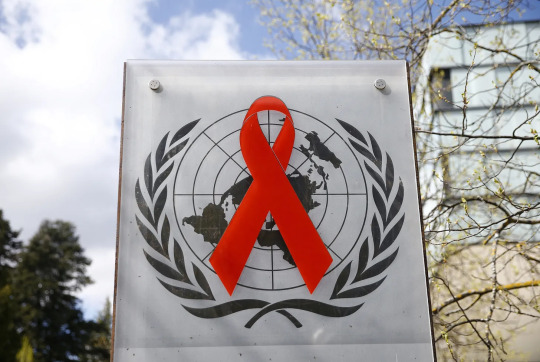
It is possible to end AIDS by 2030 if countries demonstrate the political will to invest in prevention and treatment and adopt non-discriminatory laws, the United Nations said on Thursday.
In 2022, an estimated 39 million people around the world were living with HIV, according to UNAIDS, the United Nations AIDS program. HIV can progress to AIDS if left untreated.
6. Conjoined twins released from Texas Children’s Hospital after successfully separated in complex surgery

Conjoined twins are finally going home after the pair was safely separated during a complex surgery at Texas Children’s Hospital in June.
Ella Grace and Eliza Faith Fuller were in the neonatal intensive care unit (NICU) for over four months after their birth on March 1. A large team of healthcare workers took six hours to complete the surgery on June 14. Seven surgeons, four anesthesiologists, four surgical nurses and two surgical technicians assisted with the procedure.
7. From villains to valued: Canadians show overwhelming support for wolves

Despite their record in popular culture, according to a recent survey, seven in 10 Canadians say they have a “very positive” view of the iconic predators.
Here's a fascinating video about how wolves changed Yellowstone nat'l park:
youtube
----
That's it for this week :)
This newsletter will always be free. If you liked this post you can support me with a small kofi donation:
Support this newsletter ❤️
Also don’t forget to reblog.
1K notes
·
View notes
Text
Things Biden and the Democrats did, this week #21
May 31-June 7 2024
As part of President Biden's goal to bring the number of traffic deaths to zero, the Department of Transportation has sent $480 million in safety grants to all 50 states, DC, and all the US territories. The grants will focus on trucks, buses and other large vehicles. Thanks to DoT safety actions deaths involving heavy vehicles dropped by 8% from 2022 to 2023 and the department wants to keep pushing till the number is 0.
The Departments of Interior and Agriculture announced $2.8 billion plan to protect public land and support local government Conservation Efforts. $1.9 billion will be used to repair and restore national parks and public land, restoring historic sites, as well as Bureau of Indian Education-funded schools. $900 million will go to conservation funding, allowing the government to buy land to protect it. Half the funds will go to the federal government half to state and local governments and for the first time ever a tribal Conservation Land Acquisition program has been set up to allow tribal governments to buy land to protect nature.
The Department of Transportation announced that it had managed to get customers nearly $1 Billion dollars worth of flight reimbursements. The DoT reached an agreement with 3 airlines, Lufthansa, KLM, and South African Airways to pay between them $900 million to passengers effected by Covid related cancellations and delays. This adds to the $4 billion dollars of refunds and reimbursements to airline passengers under the Biden Administration.
The Department of Interior announced $725 million to clean up legacy coal pollution. This is the 3rd pay out from the $11.3 billion dollars President Biden signed into law in the Bipartisan Infrastructure Law to clean up coal pollution and invest in communities that used to rely on the coal industry. The money will be spent across 22 states and the Navajo Nation. Closing dangerous mine shafts, reclaim unstable slopes, improve water quality by treating acid mine drainage, and restore water supplies damaged by mining.
HUD launches the first of its kind investment program in manufactured homes. Manufactured homes represent a major market for affordable housing and the Biden Administration is the first to offer support to people trying to buy. HUD hopes the program will help 5,000 families and individuals buy their own home over the next 5 years.
The Department of the Interior announced $700 million for long-term water conservation projects across the Lower Colorado River Basin. The Colorado River Basin provides water for more than 40 million people, electric power to 7 US States and is a critical crucial resource for 30 Tribal nations and two Mexican states. The project hopes to save more than 700,000 acre-feet of water in Lake Mead. In the face of climate change causing a historic 23-year drought, there is record low water levels at Lake Powell and Lake Mead. The Biden Administration has moved aggressively to try to protect the Colorado River and make sure there's enough water in the West.
HUD makes $123 million for fighting Youth Homelessness available. This represents the 8th round of investment in Youth Homelessness since 2021 for a total of $440 million so far. The Biden Administration is focusing on innovative answers, like host homes, and kinship care models, with emphasis on creating equitable strategies to assist youth who are most vulnerable, including BIPOC, LGBTQIA+, and youth with disabilities. This is part of the Biden Administration goal of cutting homelessness by 25% by the end of 2025
The Department of Agriculture announced a series of actions to strength Tribal food sovereignty. The USDA will grant tribes in Maine, Alaska, Montana, Nebraska, North Carolina, Oregon and Washington $42 million through the Indigenous Animals Harvesting and Meat Processing Grants to support native animal harvesting. $18 million for projects under the Tribal Forest Protection Act. As well as $2.3 million to support the service of Indigenous foods in school meal programs. The USDA also plans its first ever class of interns specifically focused on Tribal agriculture and food sovereignty. The USDA also plans to host a first ever international trade mission focused on Tribal Nation and Native Hawaiian Community businesses.
Bonus: President Biden, First Lady Jill Biden, and Secretaries of Defense Lloyd Austin and State Antony Blinken traveled to Normandy France to mark the 80th Anniversary of D-Day. They were joined by a handful of surviving veterans of the landings many over 100 years old.
youtube
#Thanks Biden#Joe Biden#us politics#american politics#D-Day#housing#air lines#climate change#conservation#water#colorado river
412 notes
·
View notes
Text
Women and girls are oppressed on the axis of sex:
Economic
Around 2.4 billion women of working age are not afforded equal economic opportunity and 178 countries maintain legal barriers that prevent their full economic participation, according to the World Bank’s Women, Business and the Law 2022 report. In 86 countries, women face some form of job restriction and 95 countries do not guarantee equal pay for equal work.
Globally, women still have only three quarters of the legal rights afforded to men -- an aggregate score of 76.5 out of a possible 100, which denotes complete legal parity.
Gender inequality is a major cause and effect of hunger and poverty: it is estimated that 60 percent of chronically hungry people are women and girls. (Source: WFP Gender Policy and Strategy.)
Less than 20 percent of the world's landholders are women. Women represent fewer than 5 percent of all agricultural landholders in North Africa and West Asia, while in sub-Saharan Africa they make up an average of 15 percent.
In the United States, the labor force participation rate among females is 56.5% and among males is 67.5% for 2022
Vulnerable employment among women [in the US] has remained nearly the same since 1991. Workers in vulnerable employment are the least likely to have formal work arrangements, social protection, and safety nets to guard against economic shocks; thus they are more likely to fall into poverty. Vulnerable employment among women is 3.9% and among men is 4.6% in the United States for 2021.
In the United States, women spend 1.6 times as much time on unpaid domestic and care work than men. In 2019, women in the United States spent 15.3% of their day and men spent 9.7% of their day on unpaid work.
A 2013 study revealed that 7.6% of lesbian couples in the United States live in poverty compared to 5.7% of married different-sex couples. Similarly, one-third of lesbian couples without a high school diploma were in poverty compared to 18.8% of different-sex couples.
Study: Stereotypes of middle-aged women as less ‘nice’ can hold them back at work.
Women hold 66% of all student loan debt. 41% of women undergraduates take out student loans, compared to 35% of male undergraduates. Women take an additional two years on average to pay off student loans.
Education
Women make up more than two-thirds of the world's 796 million illiterate people.
While progress has been made in reducing the gender gap in urban primary school enrollment, data from 42 countries shows that rural girls are twice as likely as urban girls to be out of school.
Male violence against women
In the United States, the share of women who have experienced intimate partner violence is nearly the same as the world average, 27%. Intimate partner violence is by far the most prevalent form of violence against women globally and is defined as the percentage of ever-married women (ages 15-49) who have ever experienced physical or sexual violence committed by their husband or partner.
35% of women worldwide have experienced either physical and/or sexual intimate partner violence or non-partner sexual violence.
1 in 3 women, around 736 million, are subjected to physical or sexual violence by an intimate partner or sexual violence from a non-partner – a number that has remained largely unchanged over the past decade.
Globally, 7% of women have been sexually assaulted by someone other than a partner.
Globally, as many as 38% of murders of women are committed by an intimate partner.
200 million women have experienced female genital mutilation/cutting.
Violence against women in Mexico rises to over 70%, study finds
7 in 10 human trafficking victims are women and girls.
Women and girls represent 65 per cent of all trafficking victims globally. More than 90 per cent of detected female victims are trafficked for the purpose of sexual exploitation.
Politics, power, and Influence
28.7% of seats in national parliament were held by women in 2022 in the United States
Metadata analysis shows biographies of women on Wikipedia are deleted and marked non-notable at a significantly higher rate than those of men.
Women continue to be underrepresented in the fields of science, technology, engineering and mathematics, representing only slightly more than 35% of the world’s STEM graduates. Women are also a minority in scientific research and development, making up less than a third of the world’s researchers.
Medical discrimination, medical violence, and female healthcare
Women 32% more likely to die after operation by male surgeon
Women are over-medicated because drug dosage trials are done on men.
Women are sometimes forcibly sterilized, without consent, across the globe.
Mental Health
A 2016 study investigating physical and mental health, and experiences of violence among male and female trafficking survivors in England found 78% of women and 40% of men reported high levels of depression, anxiety, or PTSD symptoms.
Female people in the US attempt suicide more frequently than men.
Adult women have higher rates of mental illness than adult men
Discrimination, bias, and sex-based stereotypes
UN report finds 90% of men and women hold some sort of bias against females.
Men were 93 percent more likely to have their loans discharged when disclosing a medical condition, as compared to women who disclosed medical conditions.
We historically are not included in research, and when we are, are grouped in with men which is unhelpful (bonus question: What does this mean, then, if male people who "identify-as-women" are grouped in with women and not considered a separate category?)
The Madonna-Whore Dichotomy (MWD) denotes polarized perceptions of women in general as either “good,” chaste, and pure Madonnas or as “bad,” promiscuous, and seductive whores. Men who reported higher endorsement of the Madonna-whore-dichotomy rated their partner as less entitled to sexual pleasure. Women who reported higher endorsement of the Madonna-whore dichotomy devalued their own pleasure by rating their partner as more entitled to sexual pleasure than themselves.
“Their Great Shame is Poverty”: Women Portrayed as Among the “Undeserving Poor” are Seen as Deserving Sexual Assault
The Impact of Media Use on Girls' Beliefs About Gender Roles, Their Bodies, and Sexual Relationships: A Research Synthesis.
Mothers in China for decades pressured their daughters to bind their feet - often destroying the function and formation of their feet - in order to please and service men.
My one disclaimer to this post is that there is a tremendous amount of information left out of this post. This is because it is impossible to capture the vast amount of research and details within studies illuminating the sex-based oppression of women and girls. I have not gone into depth on the impact of media on teenage girls' body image, the role of trauma in girls influencing them to hate their bodies, FGM, the Iranian protests, etc. I hope others reblog and add more information.
#women's oppression#female oppression#sex-based oppression#women's rights#afab#women's research#patriarchy
227 notes
·
View notes